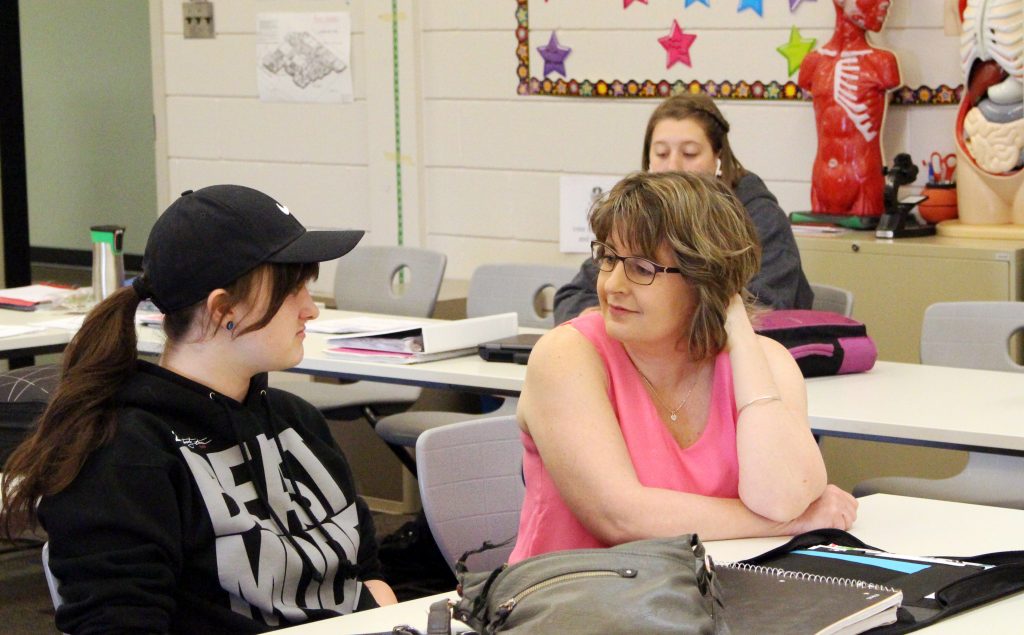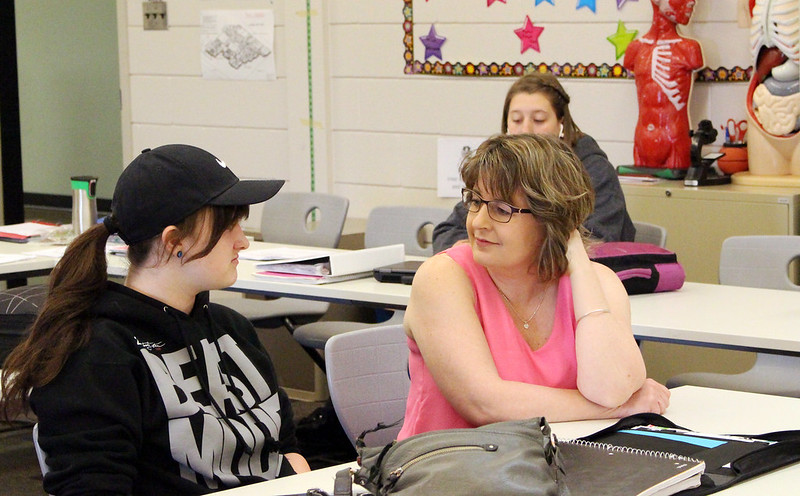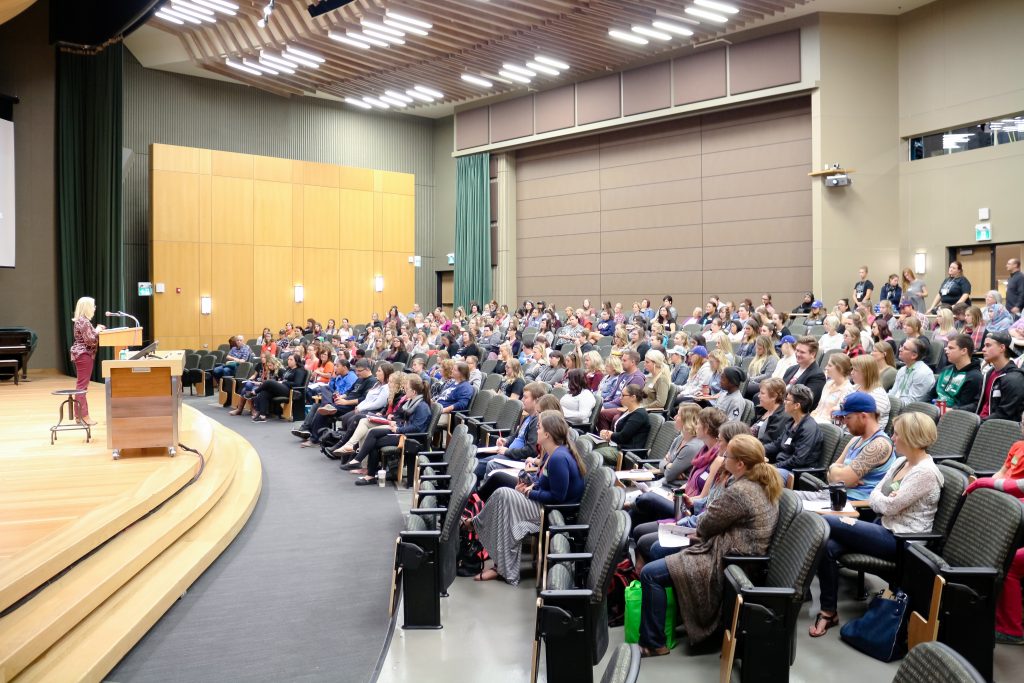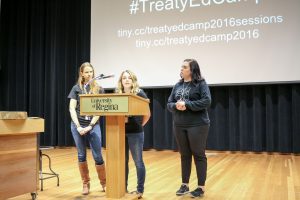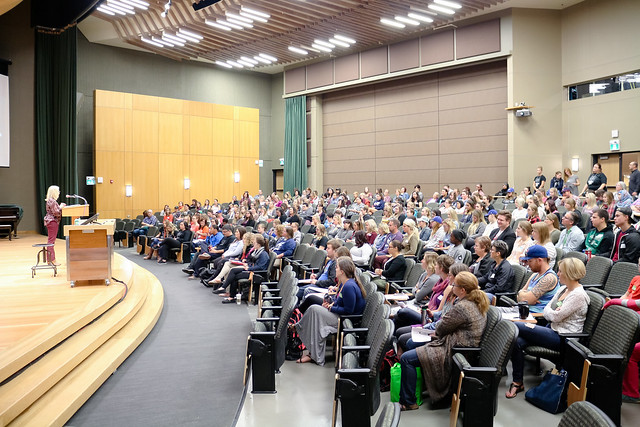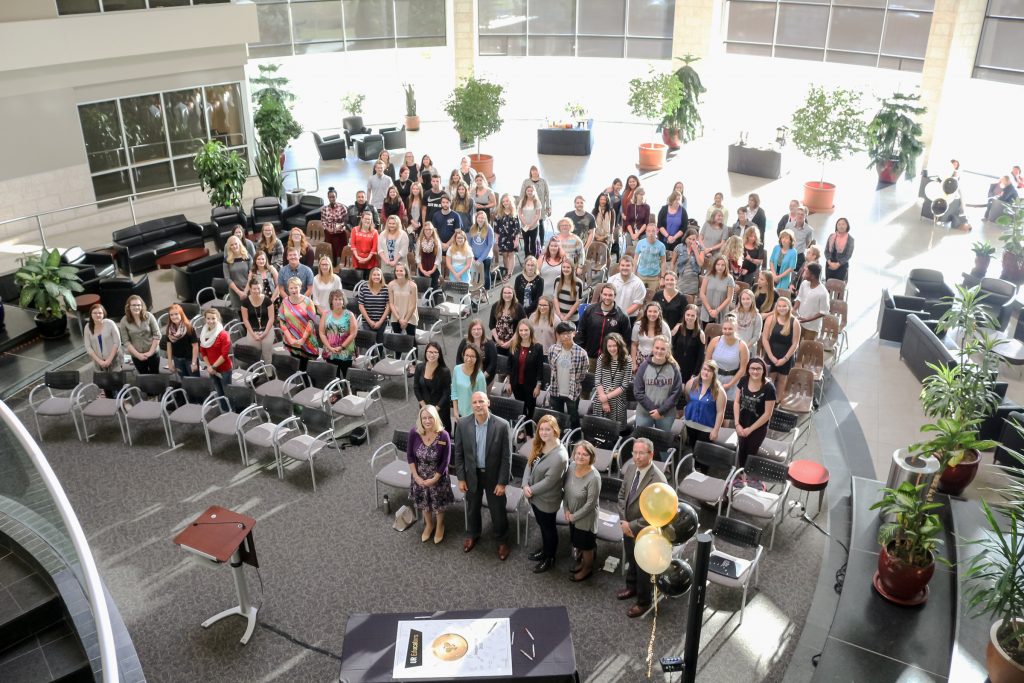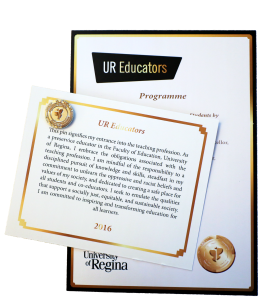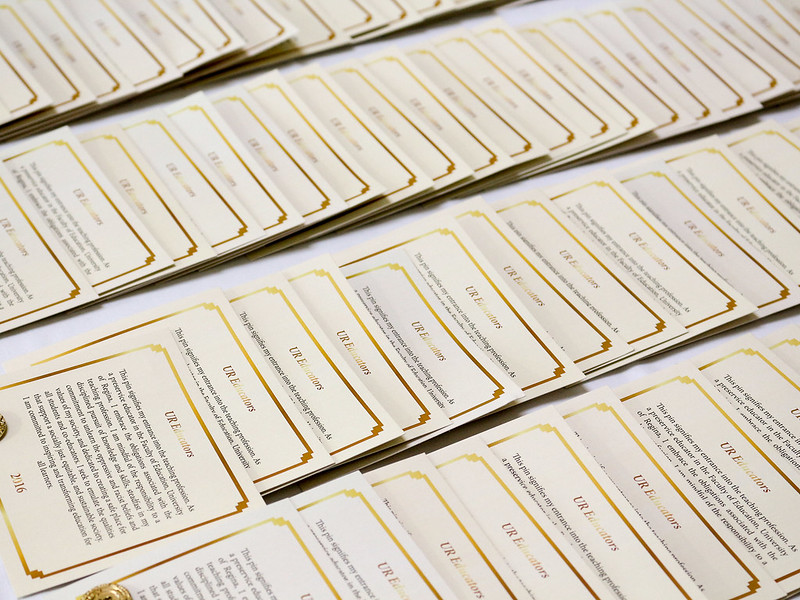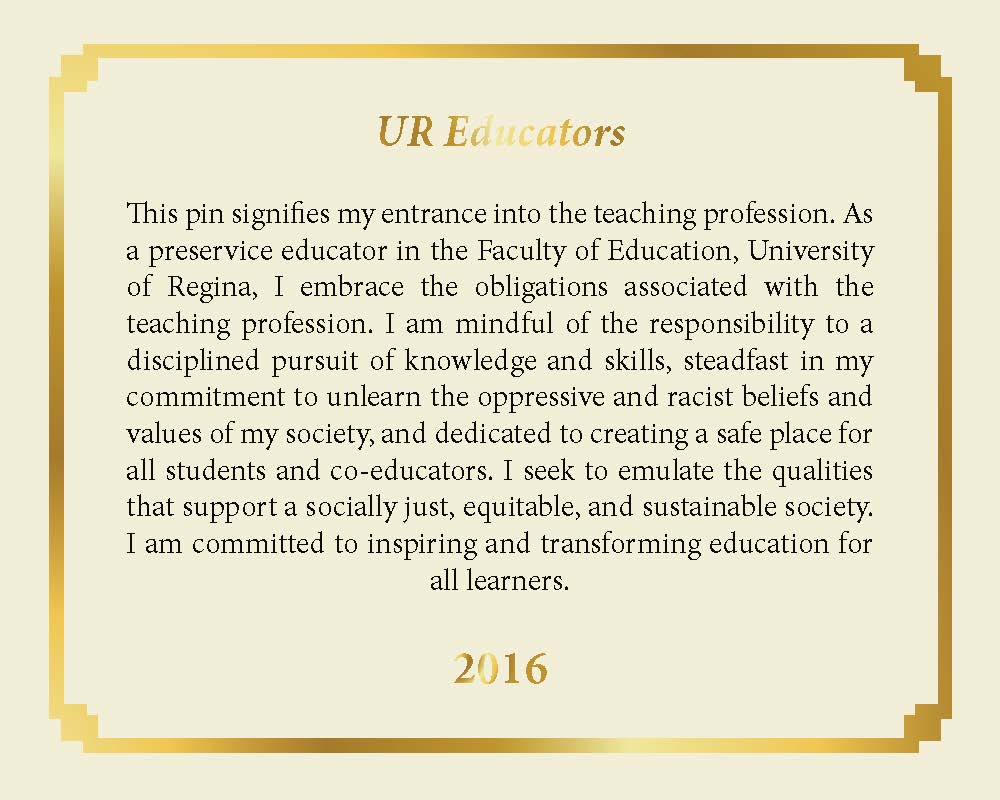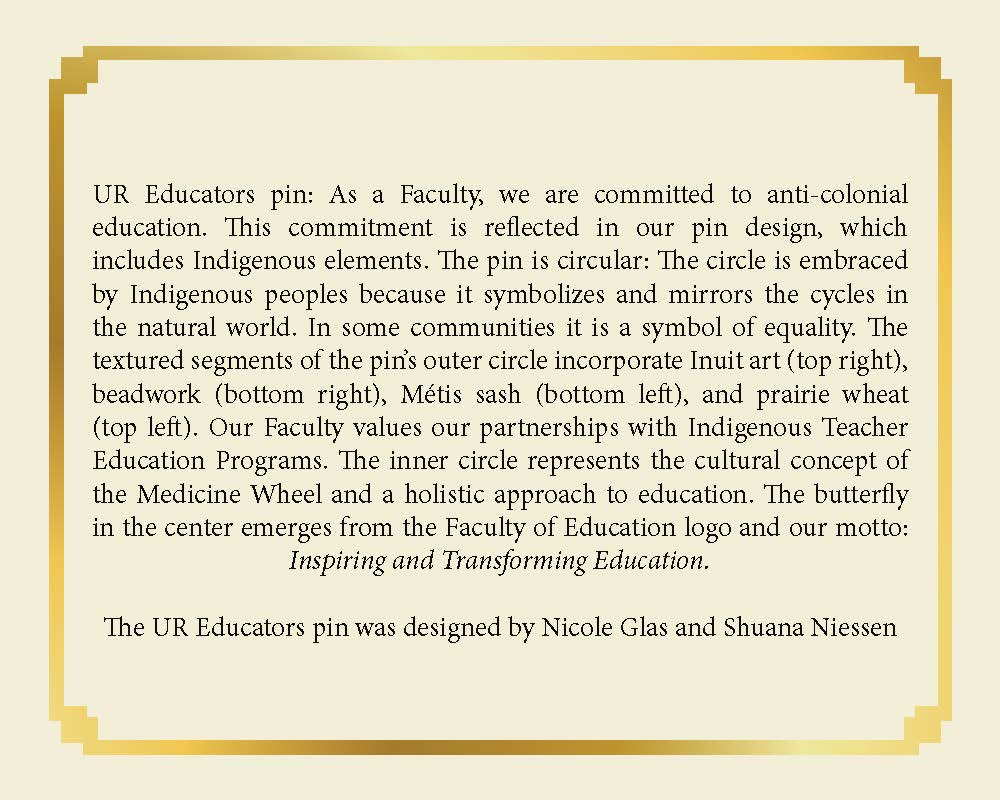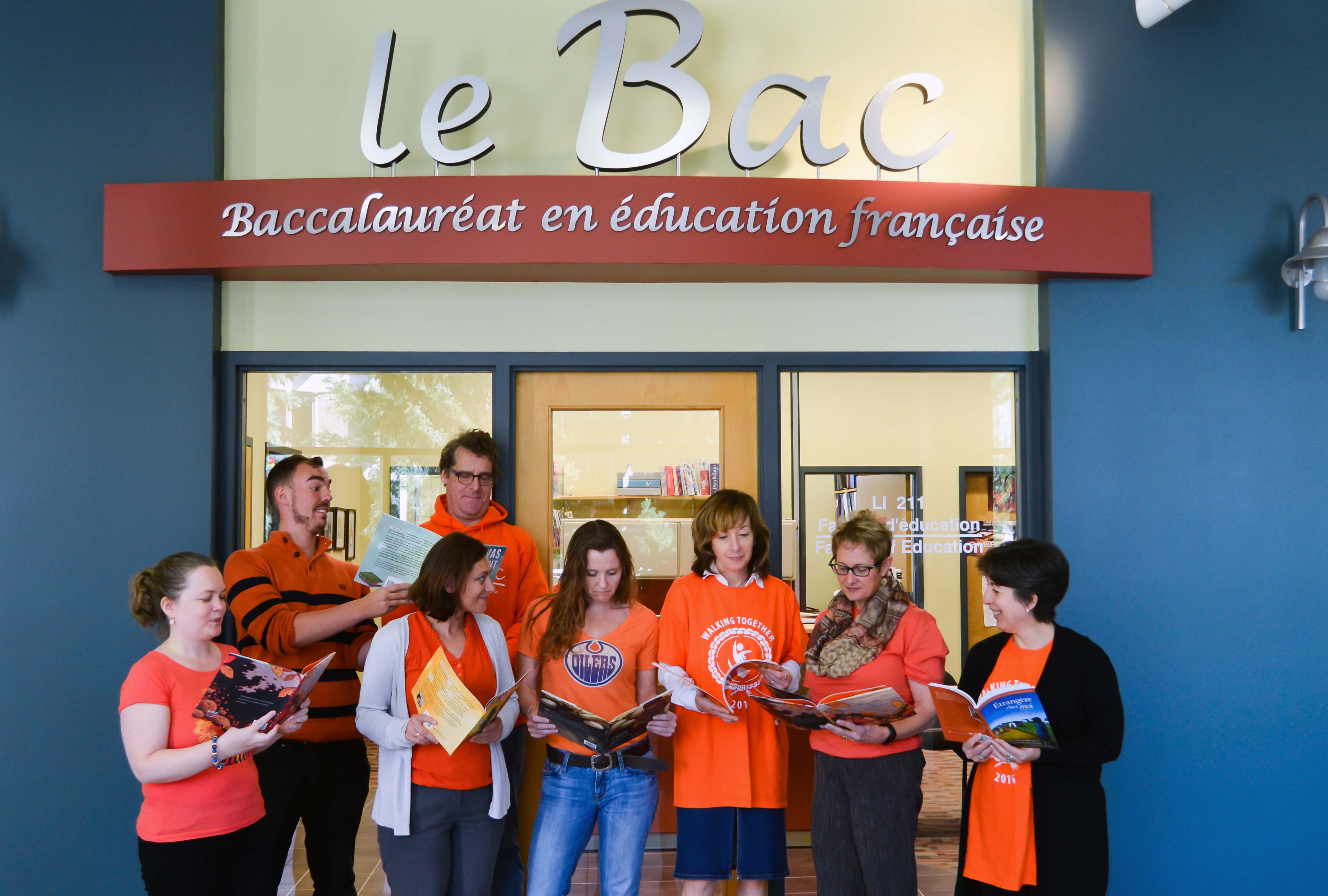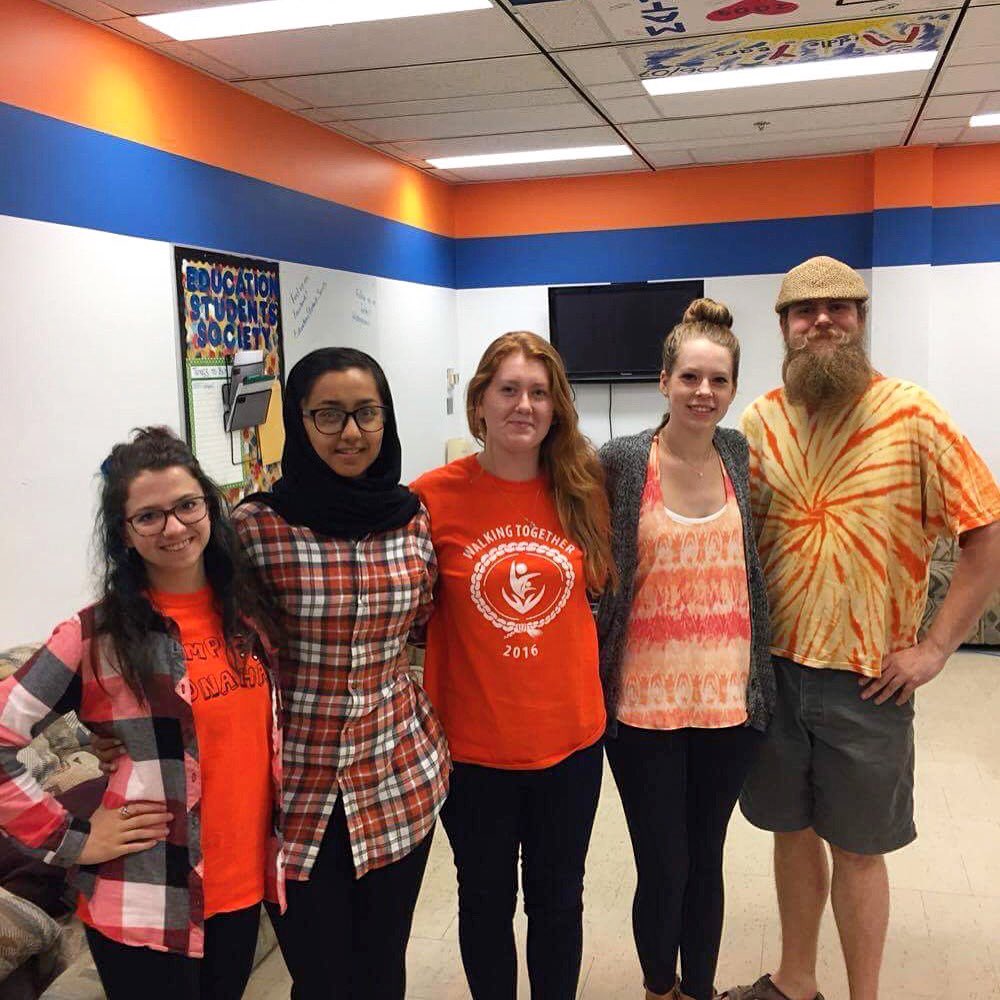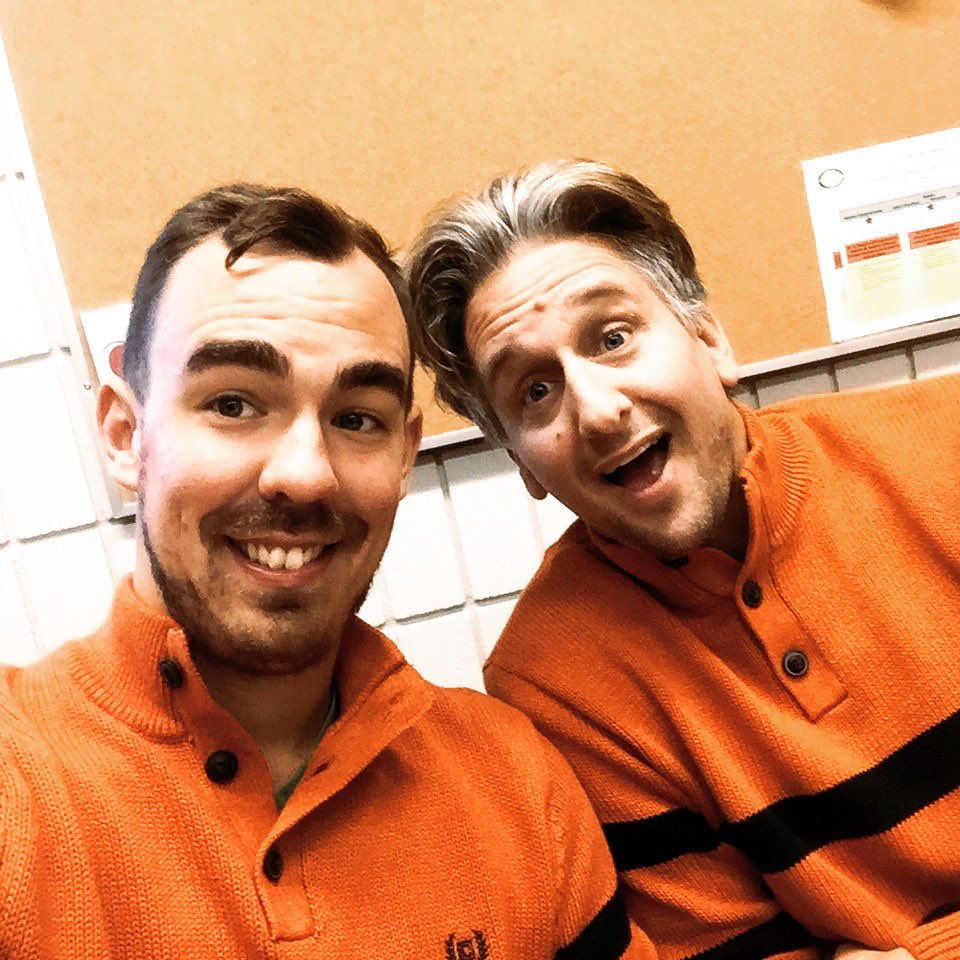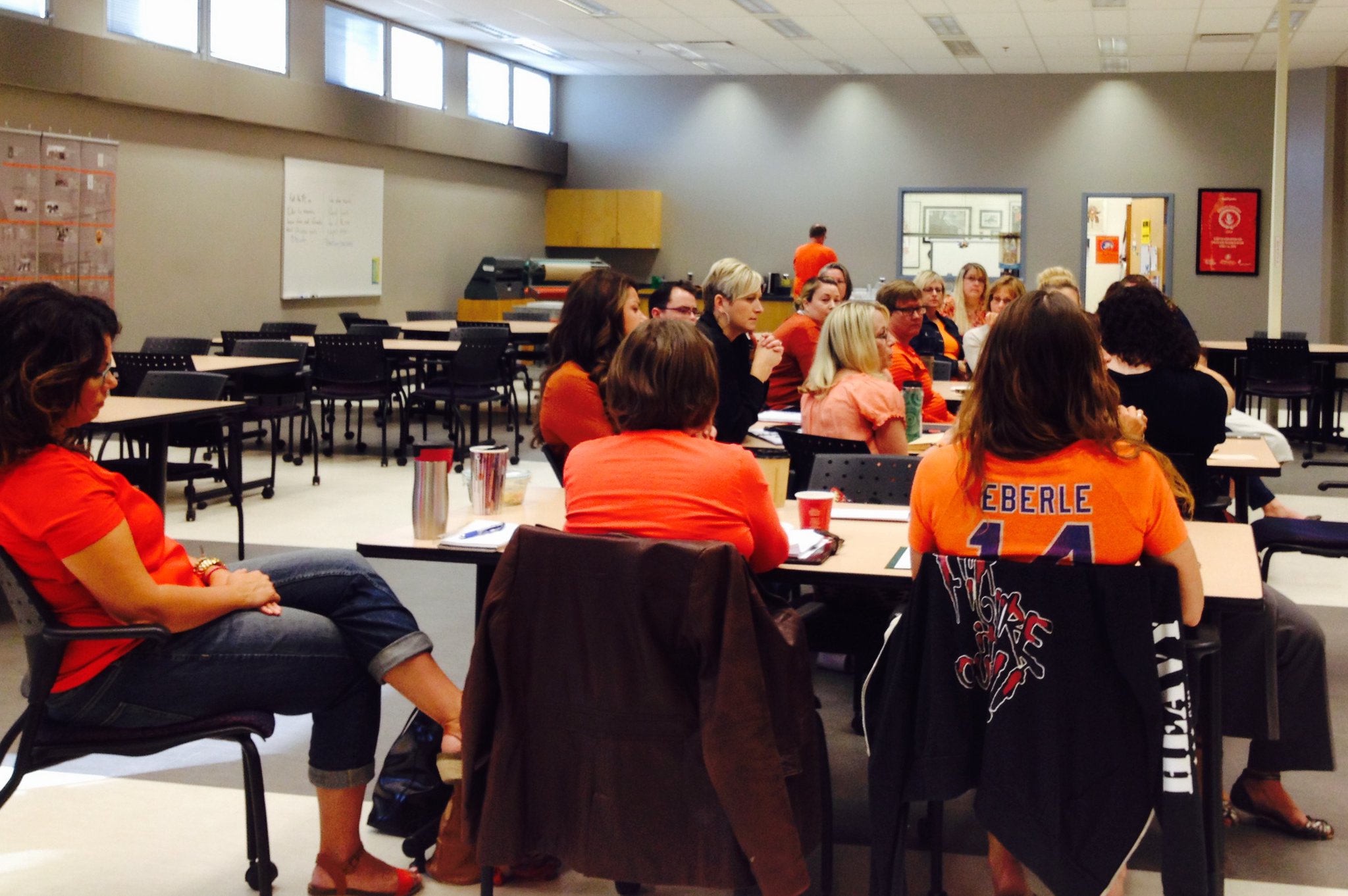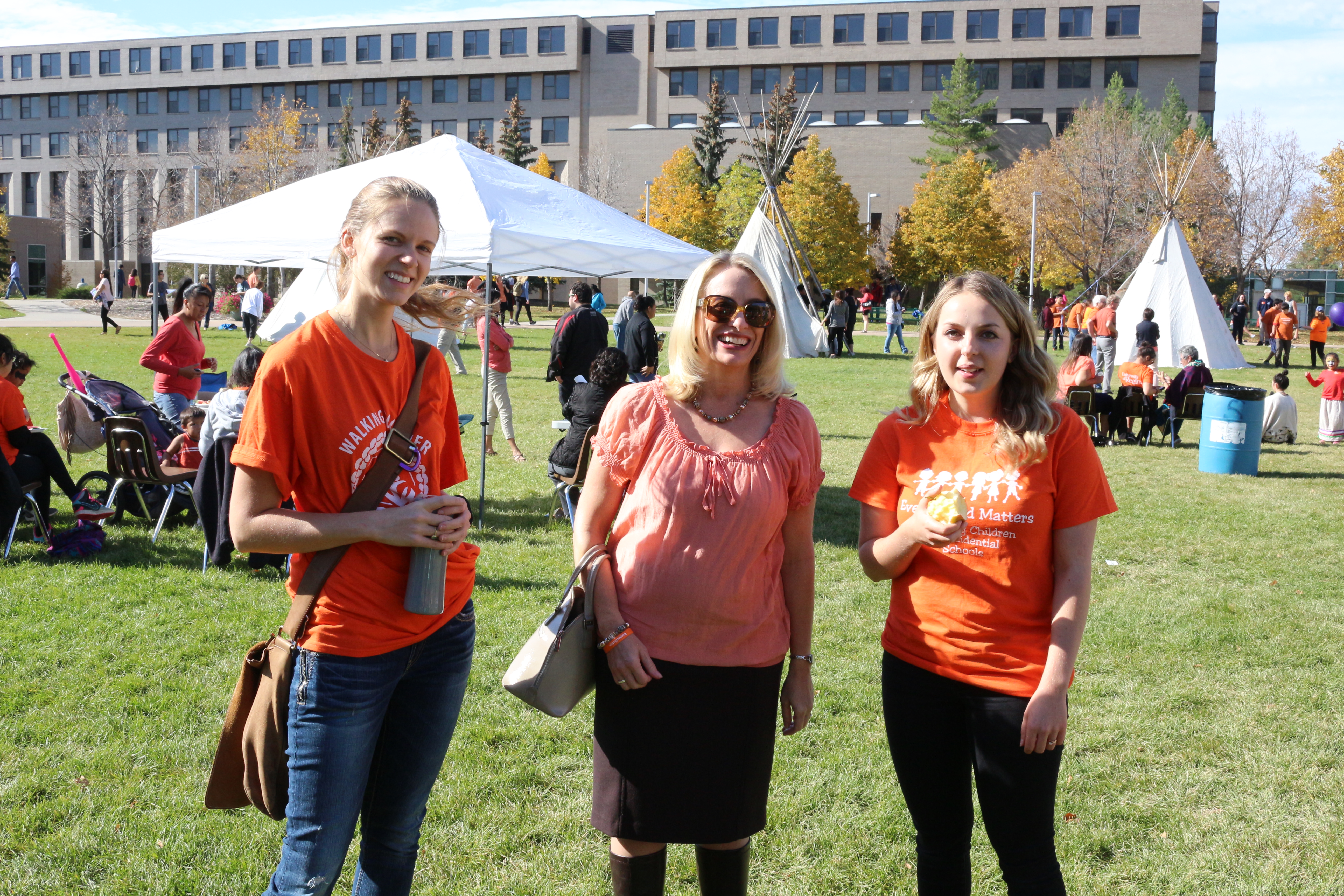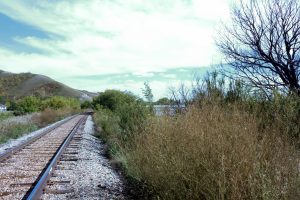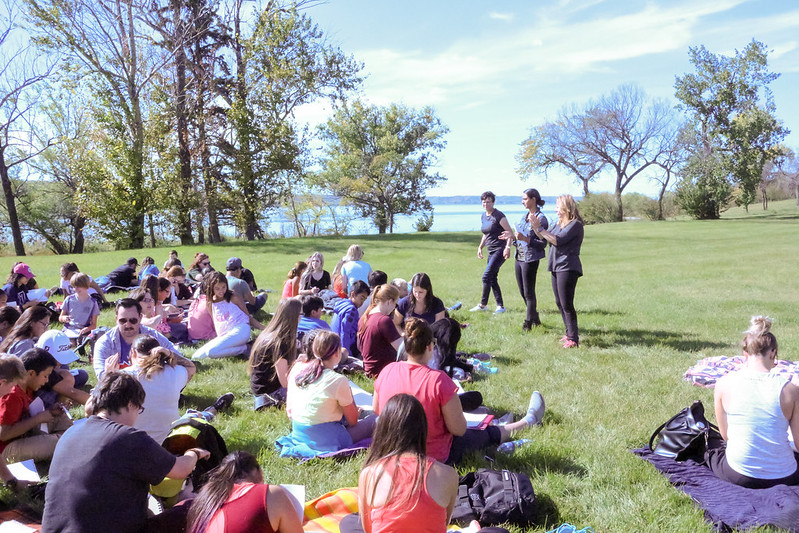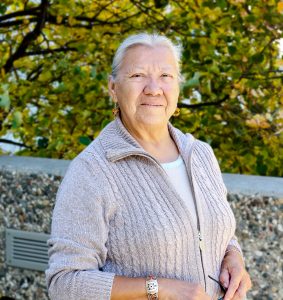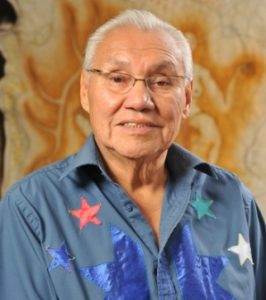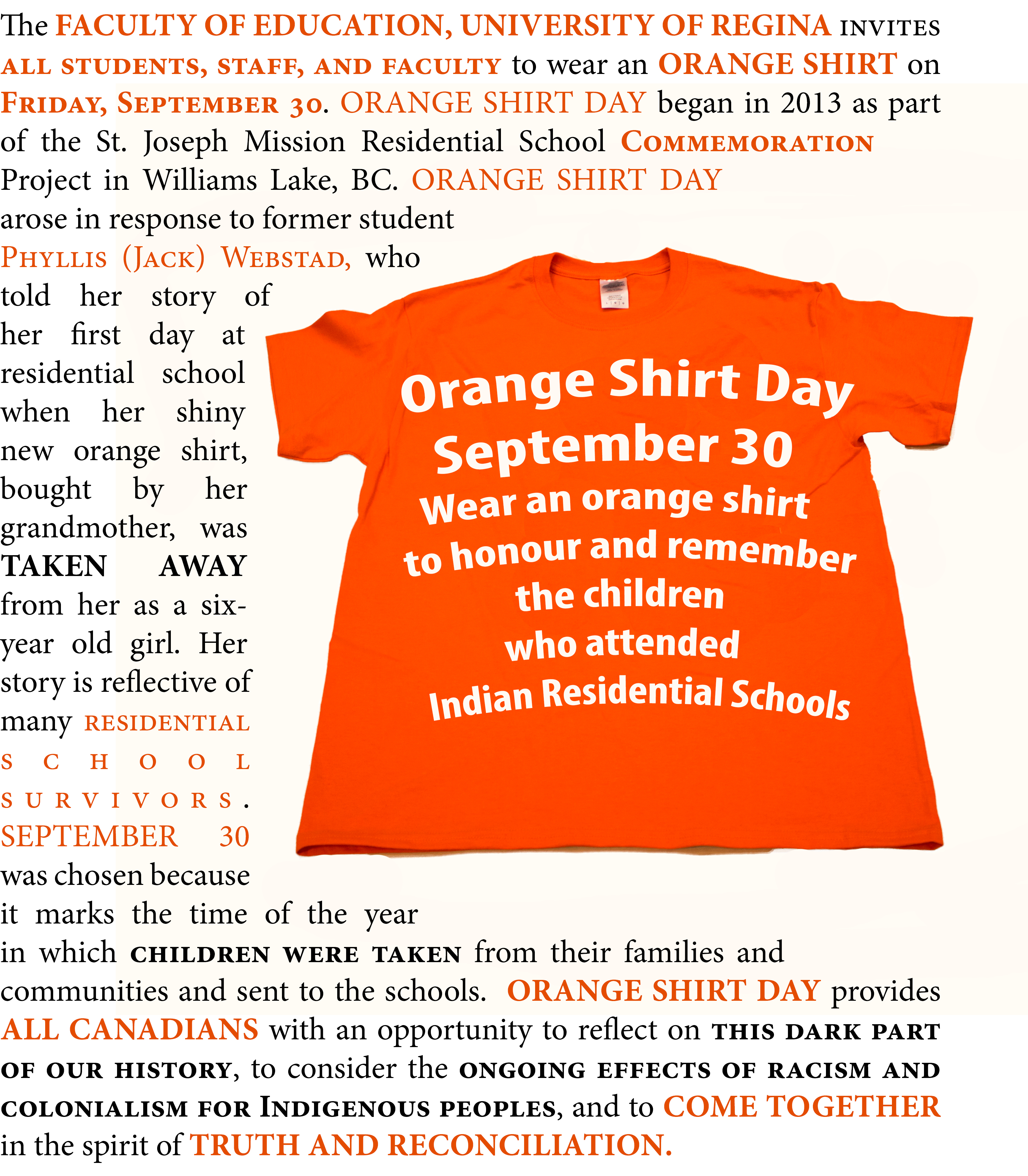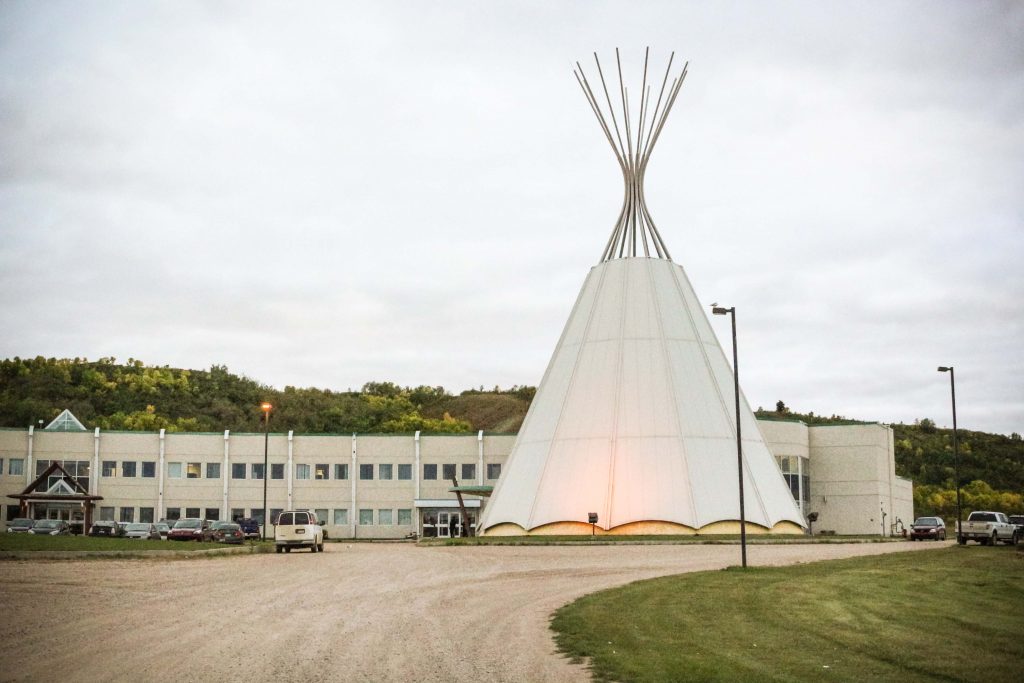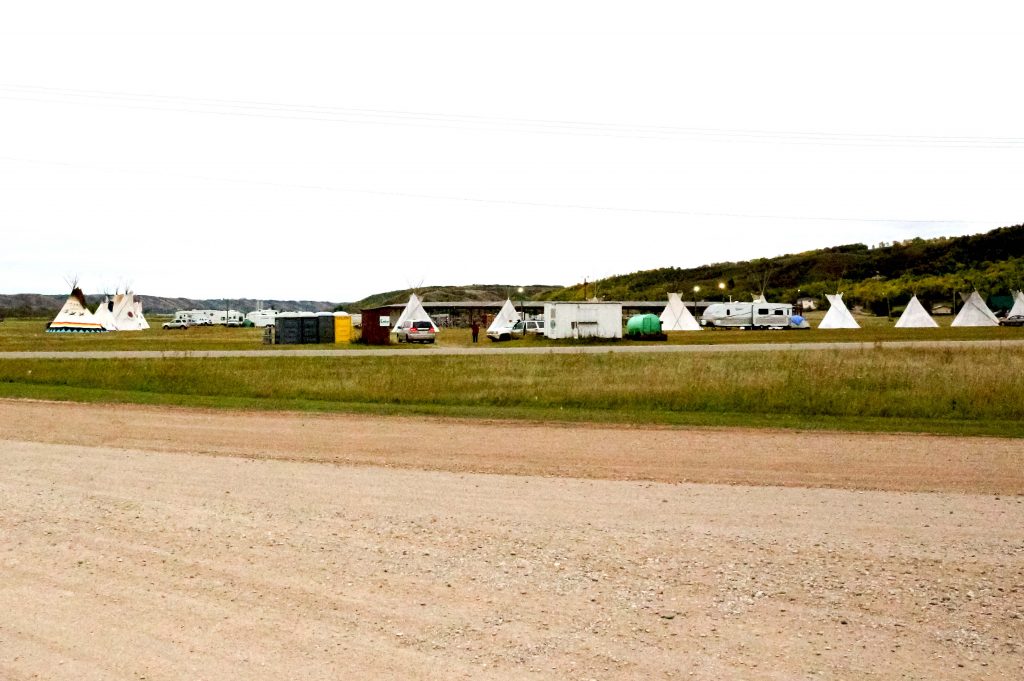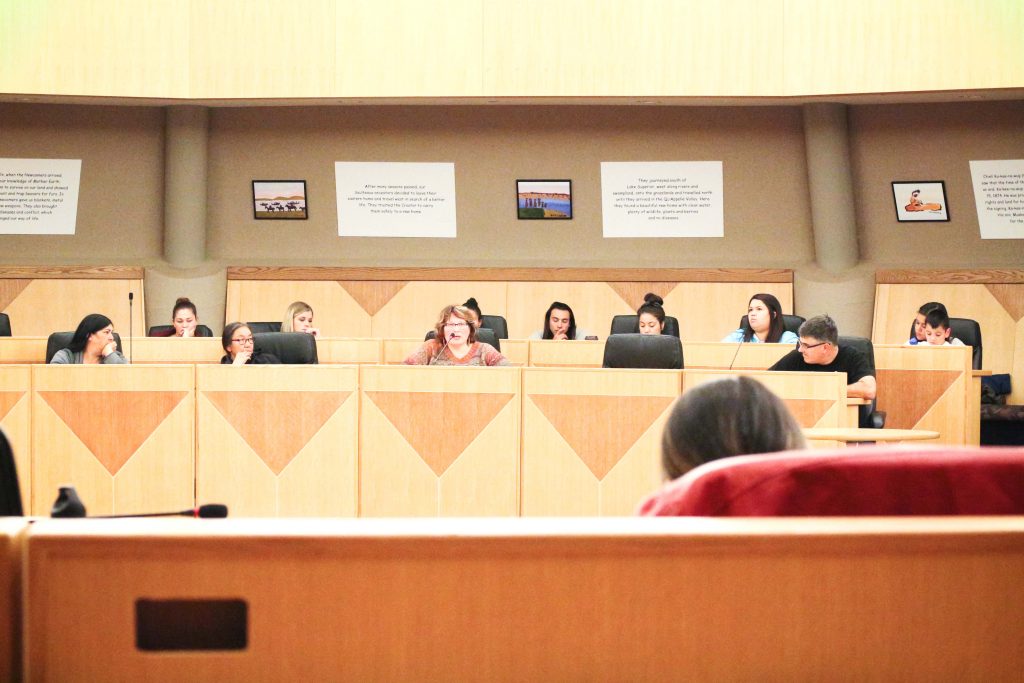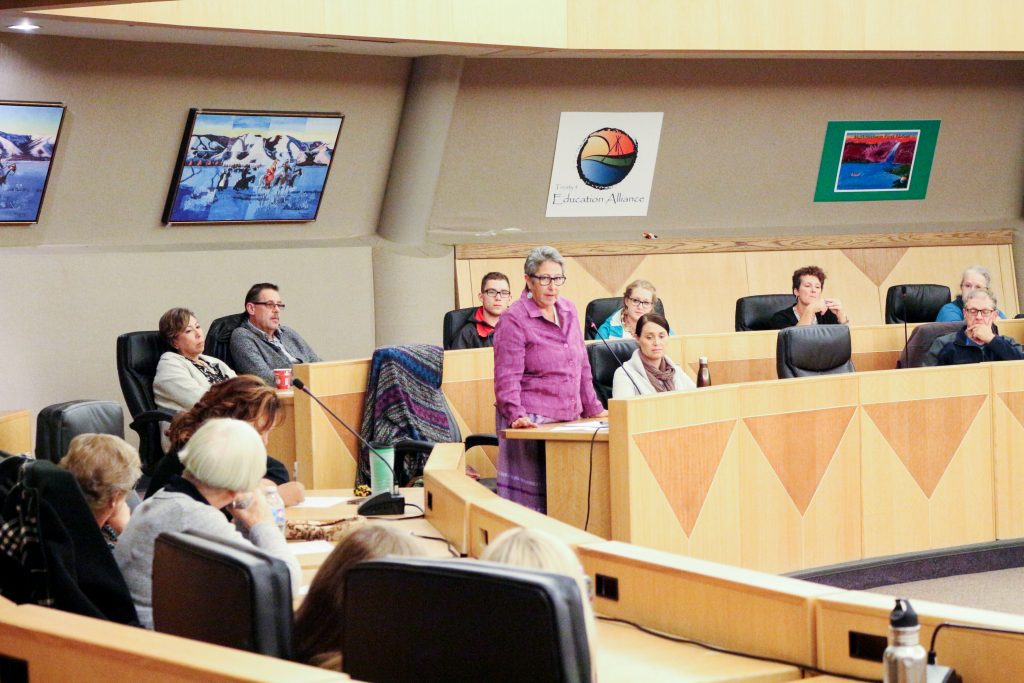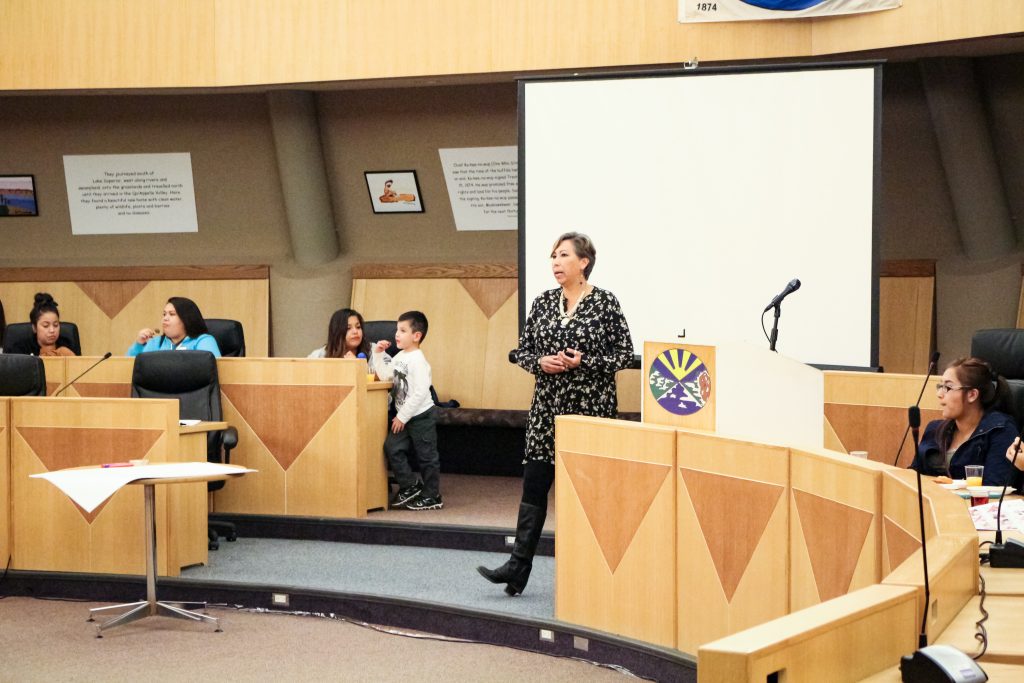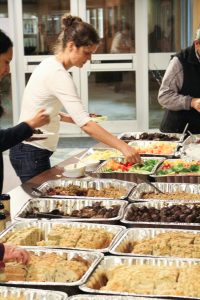For the first time, one of our Faculty of Education courses is being offered with a unique integrated high school course at Campus Regina Public School.
Dr. Twyla Salm is teaching the Education Core Studies (ECS) 100 course at Campus Regina Public as part of their Early Childhood program. Normally, ECS 100 is a required course for first year education students in all programs in the Faculty of Education. At Campus Regina Public, however, the students are still in high school!
In 2012, Regina Public Schools developed Campus Regina Public, an innovative high school program that integrates vocational and technical courses with academic courses for credit. The Faculty of Education and the University of Regina have recently partnered with Regina Public Schools to add another dimension to this already unique high school program. Last winter and, once again, this Fall, ECS 100 is being offered as part of the integrated Early Childhood Program.
Dr. Salm says, “This ECS course is a unique program integrating the learning outcomes of ECS 100, English 20/30, Psychology 30, and Career and Work Exploration 20/30.” Two Regina Public School teachers, Lisa Williams (Career Ed. & Psychology) and Jennifer Minter (English) co-teach with Dr. Salm; they plan, instruct, and evaluate as a team.
Dr. Salm says, “I am very fortunate to work in a collaborative environment with teachers and administrators that are willing to think innovatively about transitioning students from high school to post-secondary. It is a complex pedagogical teaching experience to integrate these courses effectively but our students are learning and many of them are opting to go to university.”
Jennifer Minter, co-teacher with Twyla, says, “We are so very fortunate to be able to offer such an enriching experience for our students. Integrating Dr. Salm’s course into the ECE program that we offer truly raises the bar in terms of the students’ motivation, performance and their overall educational experience. It is a tremendous advantage for them and for us, as their teachers.”
Campus Regina Public students are admitted to the University of Regina through the High School Accelerated Admission Process and receive a university credit when they successfully complete ECS 100. The University of Regina provides a scholarship which covers the cost of tuition so every Campus Regina Public student has the opportunity to experience a university course without the usual expense. Over the past two semesters, the ECS classes have been a diverse group of 32 plus students representing every high school in the city.
In the ECS 100 course, students examine topics such as the history and politics of Canadian school and the purposes it has served; how knowledge has been constructed from various historical contexts, worldviews, and values; and information about literacy and research. Students have a work experience component in which they spend time working in early childhood classrooms. They also gain research skills and learn to think critically and creatively about the construction of knowledge and educational systems.
The following are students’ comments on their experience in this course:
Kayleigh Marsh: I like that this class gives us the opportunity to get a kickstart on our university education and that we’re saving money on the class. We have learned lots about how residential schools affected the children and how they viewed the world.
Selina Musleh: I liked going on my work experience. I learned how to make a lesson plan.
Sydney Vogt: This is definitely my favourite class and it is great to be able to learn more about the development of young kids and get some experience working with them and teaching a few lessons!
Cheyenne Rathje: I love this class. I’m here for two hours a day and I love coming to this class because I get to play with little kids and do fun activities. I would do this class [more] than any other class. This is the best class ever.
Hanna Lapchuk: I have learned in working with younger kids. I have learned how to work with them and understand their learning abilities. I have worked with the kids hands-on and made learning plans with them. Spending 2 hours a day for 2 weeks with them, you really get to know the kids, know how they work, what they like, what they hate, and how to teach them in the best way.
Tabinda and Mishal: Field experience has been amazing! We’ve gained exceptional knowledge. We never knew there was so much in a child at such young ages.
Nicholas Bage: I like how this class gives you real experience on what it is like to teach an early elementary class as well on what to expect in a university class.
Kennedy Weber: I like this class because there is always so much to do and working with the kids is such a learning experience and I love coming here every day.
Chloe Anderson: I love this class because of the hands on experiences we have, along with getting real experience with children of all ages.
Jaida Crichlow:The ECE program has awesome educators and a safe and fun environment to be in.
Brianna Pinay: It is a very great program with many opportunities.
Hailey Harron: I love this program because it teaches you everything you need to become a teacher and how to understand children better.
(Photo gallery below. Slide cursor over photo and click the arrow to see next photos)
